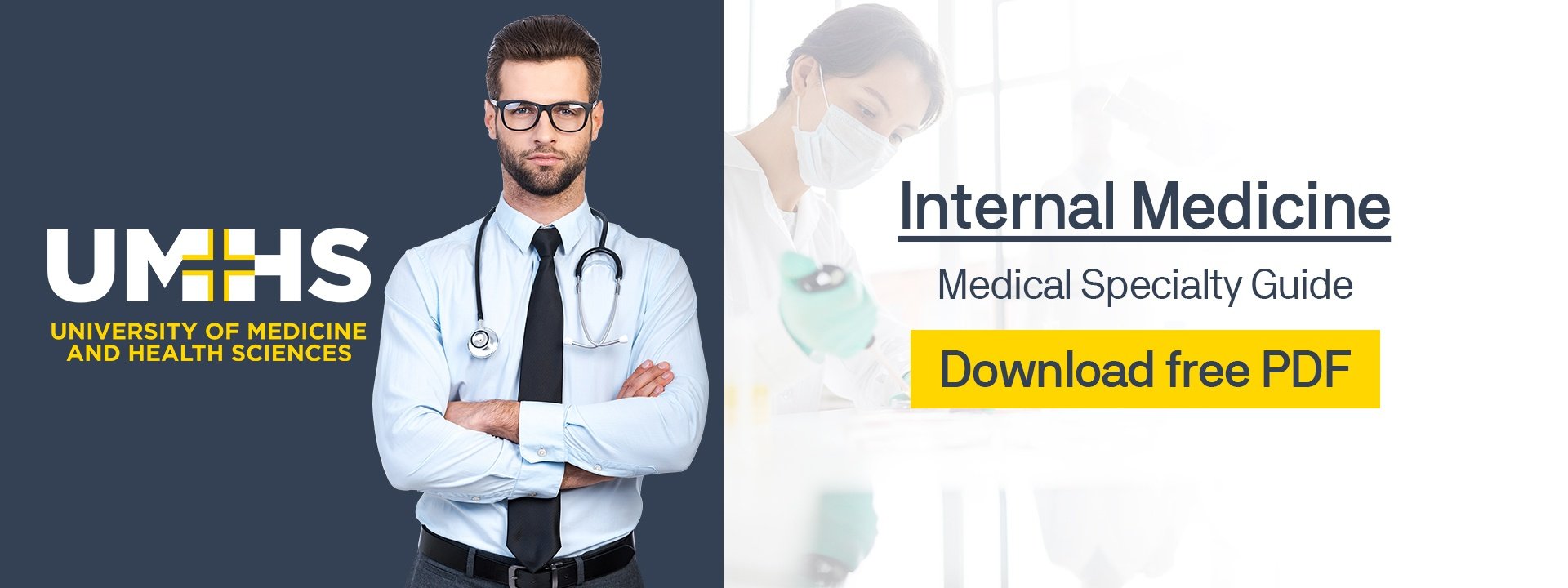Deciding whether becoming a doctor is worth it involves weighing a multitude of factors, encompassing both challenges and rewards of the career. The journey to becoming a physician is undeniably arduous, beginning with the intensely competitive process of gaining admission to medical school, which requires a strong academic record, high MCAT scores, and a well-rounded application. Once admitted, medical students face a grueling curriculum that demands mastery of a vast and complex body of knowledge, coupled with rigorous clinical training. This training extends over an extensive period, typically including four years of undergraduate education, four years of medical school, and an additional 3 to 7 years of residency, depending on the specialization. Along the way, students and residents endure long hours, immense workloads, and significant stress. Despite these difficulties, many find the personal and professional rewards—such as the opportunity to make a meaningful impact on patients’ lives, job security, and financial stability—make the demanding path worthwhile. In this article, we discuss the pros and cons of being a doctor, how hard and stressful the job can be, a comparison to the field of engineering, a doctor’s pay, and the training that all doctors must undergo.
Quick Navigation Links + FAQs
- Pros and cons of being a doctor?
- Is being a physician hard?
- Is being a physician stressful?
- Is becoming a doctor harder than engineering?
- How hard is med school?
- What kind of physician makes $500,000 a year?
- What careers in medicine can make $1 million a year?
- Are doctors richer than engineers?
- What is the best age to become a physician?
- Do doctors get paid during residency?
- Do residents in training get to see patients by themselves?
- Getting started in medicine at UMHS
What are the pros and cons of being a doctor?
Becoming a doctor comes with several significant advantages, making it a highly rewarding career choice for many. One of the pros of the field is the profound impact on patient lives, offering the opportunity to diagnose, treat, and prevent illnesses, which can be incredibly fulfilling. Doctors play a crucial role in improving patient well-being and often develop deep patient relationships and a strong sense of community involvement. Additionally, the medical field offers a wide range of specialties and sub-specialties, allowing doctors to pursue their specific interests and passions, and providing varied and intellectually stimulating career paths.
Financial rewards are another notable advantage, as doctors typically earn a high salary that provides economic stability and can yield substantial financial benefits over time. The job outlook for physicians is also generally positive, with high demand for medical professionals expected to continue due to factors like an aging population and continuous advancements in healthcare. This demand can translate into job security and numerous opportunities for career growth and advancement within the medical field.
However, there are also several cons and potential drawbacks to consider. The path to becoming a doctor is long, intensive, and expensive, requiring a minimum of 11 years of education and training, including undergraduate studies, medical school, and residency. This often results in substantial student debt. The profession also demands long hours, with extended shifts, on-call duties, and a work schedule that can intrude on personal and family life. The high-stress environment and emotional toll of dealing with severe illnesses, patient suffering, and sometimes life-and-death situations can lead to burnout and decreased mental well-being. Balancing these challenges with the many rewards requires a genuine dedication to the medical profession and a strong support system.
Is being a doctor hard?
Yes, being a doctor is challenging, both in terms of the rigorous training required and the demands of the profession itself. The journey to becoming a doctor involves years of intensive education and training, including four years of undergraduate studies, four years of medical school, and 3 to 7 years of residency, depending on the specialty. Throughout this period, aspiring doctors are required to absorb vast amounts of complex information, pass demanding exams, and gain hands-on experience in patient care. The workload can be intense, and the pressure to perform well academically and clinically is significant. Furthermore, medical students and residents often face long hours, including overnight shifts and being on-call, which can be physically and emotionally exhausting.
Once in practice, doctors continue to face stressors. They must stay current with rapid advancements in medical knowledge and technology, which requires ongoing education and adaptability. The profession demands handling high-stakes situations, making critical decisions under pressure, and dealing with life-and-death scenarios. Doctors also navigate the complexities of healthcare systems, including administrative tasks, insurance issues, and patient management. Moreover, the emotional toll of the job can be significant, as doctors frequently encounter human suffering, difficult diagnoses, and the responsibility of delivering both good and bad news to patients and their families. Despite these challenges, many doctors find the career incredibly rewarding, with the opportunity to make a meaningful impact on patients’ lives and contribute to the greater good of society.
Is being a doctor stressful?
Yes, being a doctor is often highly stressful, given the immense responsibilities and pressures associated with the profession. One significant source of stress is the necessity to make critical decisions quickly and accurately, sometimes in life-threatening situations. These decisions can have profound implications for patient outcomes, making the weight of this responsibility considerable. Additionally, doctors frequently deal with emotionally charged environments, such as consoling families after a grim diagnosis or handling end-of-life care, which can be mentally and emotionally taxing.
Another major contributor to stress is the demanding work schedule that doctors often face. Extended work hours, the need to be on call, and the unpredictability of emergency situations can disrupt personal life and make achieving a work-life balance challenging. The administrative burdens, including extensive documentation and compliance with complex healthcare regulations, add to the workload and can detract from the time available for direct patient care. Moreover, doctors may face pressures related to performance metrics, patient satisfaction scores, and the financial aspects of running a medical practice. Managing these various stressors requires strong coping mechanisms, support from colleagues and family, and a genuine commitment to the medical profession to maintain resilience and job satisfaction.

Ready to pave your medical career path?
Check out our definitive guide to the top 20 medical specialties.
Is becoming a doctor harder than engineering?
Comparing the difficulty of becoming a doctor to that of becoming an engineer largely depends on the specific demands and nature of each profession. The path to becoming a doctor is typically longer and more grueling, involving four years of undergraduate studies, four years of medical school, and 3 to 7 years of residency training. Medical students must understand and memorize a vast amount of complex information, work long hours, and undergo rigorous testing. The profession also involves high levels of stress due to the responsibility of patient care, the emotional toll of dealing with illness and death, and the necessity for continuous education to stay current with medical advancements.
On the other hand, becoming an engineer usually requires a four-year undergraduate degree, with the option of further specialization through graduate studies. While the coursework can be rigorous, focusing heavily on mathematics, physics, and technical subjects, the overall educational path is generally shorter than that of a doctor. Engineers often face stress related to project deadlines, technical problem-solving, and ensuring safety and reliability in their designs. While challenging, the stress encountered in engineering typically does not involve the same level of life-and-death decision-making found in the medical field. Ultimately, the difficulty of each career path depends on an individual’s skills, interests, and personal strengths.
How hard is med school?
Medical school is notoriously challenging due to the intense studying required to master a vast and complex body of knowledge. The curriculum is rigorous and fast-paced, covering a wide range of subjects including anatomy, physiology, biochemistry, pharmacology, and pathology, among others. Students must not only understand the detailed functions of the human body but also how various diseases affect these systems. This often necessitates long hours of reading, attending lectures, participating in labs, and engaging in clinical rotations. The volume of material to be learned and retained for exams is immense, far surpassing that of many other academic programs.
The stress of constant testing further intensifies the difficulty of medical school. Students regularly face high-stakes exams that assess their understanding and ability to apply their knowledge practically. These tests often include written exams, practical assessments, and oral exams. The pressure to perform well can be overwhelming, as grades are crucial for securing desirable residencies and future career opportunities. The constant need to prove competency can lead to significant stress and anxiety among medical students. Additionally, the competitive nature of medical school can contribute to a high-stress environment, as students strive to excel and distinguish themselves among their peers.
The demanding workload, coupled with the need for clinical responsibilities, contributes to the long work hours typical of medical school. Clinical rotations require students to work in hospital settings, often starting early in the morning and continuing late into the night. This hands-on experience is essential for learning to care for patients and apply theoretical knowledge in real-world scenarios, but it also adds to the fatigue and stress levels experienced by students. The cumulative effect of intense studying, frequent testing, and extended work hours can lead to burnout, contributing to the relatively high dropout rate in medical school. Maintaining a balance between academic demands and personal well-being is a constant challenge, and students must develop effective time-management and self-care strategies to succeed.
What doctor makes $500,000 a year?
Doctors who make $500,000 a year typically belong to highly specialized fields, where both the demand for expertise and the complexity of the procedures contribute to higher compensation. These specialties often include neurosurgery, orthopedic surgery, and interventional cardiology. Surgeons in these areas perform complex, high-risk surgeries that require extensive training and experience. Additionally, doctors in high-demand geographic areas or those who operate private practices with high patient volumes may reach or exceed this income level. Various factors like years of experience, reputation, geographic location, and the efficiency of private practice management can also influence earning potential.

What careers in medicine can make $1 million a year?
Achieving a $1 million annual income in the medical field is uncommon but possible, particularly for those in highly specialized and in-demand fields. Specialties such as neurosurgery, orthopedic surgery, and interventional cardiology are known for their high earning potential due to the complexity, skill, and risk associated with the procedures they perform. Experienced neurosurgeons and orthopedic surgeons, especially those who have established a strong reputation and operate in well-populated, affluent areas, can reach this income level. Similarly, interventional cardiologists who perform a high volume of procedures can also command significant salaries.
In addition to clinical skills, physicians who achieve this level of income often engage in entrepreneurial activities, such as owning private practices, surgery centers, or clinics, which allows them to benefit directly from the revenue these entities generate. Successful plastic surgeons in affluent regions, dermatologists offering lucrative cosmetic procedures, and gastroenterologists in private practice can also see substantial financial rewards. The intersection of medical expertise and business acumen significantly contributes to achieving higher earnings. However, reaching such financial heights typically requires an exceptional level of dedication, long work hours, and the ability to manage both medical and business responsibilities effectively.
Are doctors richer than engineers?
In general, doctors tend to earn higher salaries than engineers, particularly as they advance further into their careers. Physicians and surgeons, especially those in high-demand specialties such as neurosurgery, orthopedic surgery, and cardiology, typically have higher earning potentials. According to data from the U.S. Bureau of Labor Statistics (BLS) and various industry surveys, the median annual salary for physicians and surgeons can range from approximately $200,000 to over $500,000, depending on the specialty and experience level.
Engineers also enjoy lucrative careers, but their salaries can vary widely based on their field of specialization and level of experience. For example, software engineers and petroleum engineers are among the higher-paid subsets, with median annual salaries often ranging from $80,000 to over $150,000. While some top-tier engineers can earn salaries comparable to or exceeding those of some physicians, the average earning potential for doctors is generally higher.
It’s important to consider that becoming a doctor often involves higher educational costs and more years of training compared to most engineering careers. This extended period of education and training can delay the onset of higher earning years. Additionally, both professions offer extensive opportunities for financial success and professional fulfillment, and individual outcomes can vary greatly based on various factors such as geographic location, professional choices, and career advancements.
What is the best age to become a doctor?
There is no definitive “best age” to become a doctor, as the ideal time varies based on individual circumstances, life goals, and personal readiness. However, many people aspire to complete their medical education and start practicing in their late 20s to early 30s.
Typically, a traditional path involves finishing undergraduate studies around age 22, completing medical school by age 26, and then completing residency training by the early 30s. This timeline allows individuals to begin their medical careers relatively early and have a long professional lifespan ahead of them.
That said, non-traditional students who enter medical school later in life—such as those in their 30s, 40s, or even older—can also achieve fulfilling careers. Many medical schools value the diverse life experiences and maturity that older students bring. Transitioning into medicine later in life may present additional challenges, such as balancing family responsibilities and potentially accruing more student debt, but it is entirely possible to have a successful medical career at any age.
Ultimately, the best age to become a doctor depends on when an individual feels ready to commit to the rigorous education and training required, taking into account their personal and professional goals.

Do doctors get paid during residency?
Yes, doctors do get paid during residency, although the salaries are relatively modest compared to what they can earn once fully licensed. Residency salaries typically range from about $50,000 to $70,000 per year, depending on the location, specialty, and year of training. These stipends are intended to help residents, who are still in the learning phase of their careers, cover living expenses while they gain hands-on experience in patient care under the supervision of experienced physicians. Despite the long hours and demanding workload, this compensation is necessary as residents often work intensive schedules and are responsible for the day-to-day care of patients, which is a crucial part of their training process. The salary structure usually increases incrementally with each year of residency as the resident gains more experience and takes on greater responsibilities.
Do residents in training get to see patients by themselves?
Yes, residents in training do see patients by themselves, but they do so under the supervision of attending physicians. Residency programs are designed to provide graduated responsibility, where residents progressively take on more complex patient care tasks as they advance through their training. In the early stages of residency, residents may see patients independently for initial assessments or routine follow-ups, but they are required to discuss their findings, treatment plans, and any significant decisions with supervising attending physicians. This supervision ensures patient safety and provides residents with critical feedback and guidance. As residents gain more experience and demonstrate competence, they are granted more autonomy in managing patients, although they always have access to supervision and consultation as needed. This structured approach helps residents develop the skills and confidence necessary to practice independently once they complete their training.
Getting started in medicine
Now that you know more about the pros and cons of becoming a physician, you may want to take the next step by applying to an accredited medical school like the University of Medicine and Health Sciences. Some students feel better about applying after talking with our admissions staff.
Frequently asked questions are answered here.
Popular and related articles

Callie Torres is a double board-certified physician, a freelance health and medical writer, as well as an author of many peer-reviewed medical articles.





















